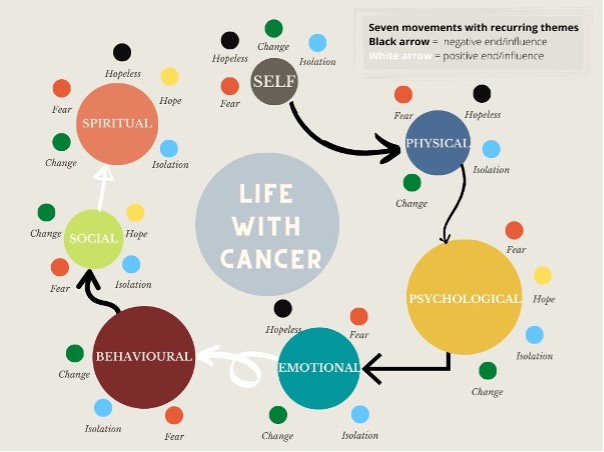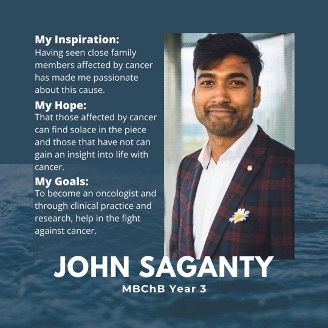My Medical Humanities course was a journey to greater understanding, for the life-altering condition of cancer, music is the best way.
Why this topic?
Cancer affects everyone in some form, however, how can anyone truly understand if they have not experienced it themselves. In medicine, we are taught that a holistic approach to treatment is the most effective. If I had any hope of becoming an oncologist, I needed to understand my future patients better (Fig. 1). However, patients rarely wish to bare their soul and everyone else is afraid to ask. Music could be the bridge that communicates these feelings that words could not. As part of Medical Humanities, I created a project with the purpose to translate the patient’s journey into music for a string quartet and give the listener insight into their perspective.
Research Phase
Research papers of detailed first-person accounts with cancer (autoethnographies) were used to understand the patient perspective. I realised how diverse their perspectives were and the many contributing factors. Unexpectedly, all the patients felt that there was no end to the condition, as the fear of recurrence continues. Therefore, this is a recurring theme throughout the composition.
Planning Phase
While their journeys were different, cancer affected all aspects of their lives. Therefore, the composition articulates each aspect (Fig. 2). I identified common themes which were either shared or contrasted between the movements. E.g., isolation in Self, the patients are isolating themselves from the cancer, while in Spiritual, patients are feeling isolated from God. The overarching theme of denial connects the movements. Denial of having cancer, support from others and even their faith.

Figure 2: Diagrammatical representation of the composition. Author's Own.
Composition Phase
For each movement, I used inspiration from my favourite film scores, the works of Hans Zimmer, John Williams, and even Studio Ghibli. To establish continuity, I created short repetitive music phrases for each theme (a common technique used in film scores), which appear in the movements when required (Fig. 2). However, interactions with each other are crucial, both Physical and Emotional have the same themes but interact differently to produce contrasting sounds and feelings. Every movement is like a story, with a beginning, middle and end. Therefore, a theme may also evolve throughout the piece (most obvious in Social). Finally, the order of the movements was based on the links between aspects, starts with Self as this is the first aspect affected in a patient’s journey and ends with Spiritual as this is the last place patients may turn to.
The composition has yet to be performed, but you can find recordings using composition software on SoundCloud.
Conclusion
Medical humanities fulfilled its purpose of providing an alternative aspect to medicine and offered a chance to ‘take the wheel’. This project allowed me to fulfil a lifelong ambition while understanding the patient perspective better, which will ultimately make me a better doctor.

Figure 3: Quote by Yehudi Menuhin. Author's Own.


